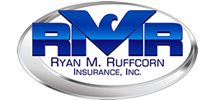How do I know if an insurance company is good or bad?

Not too long ago, we gave you tips on how to find the right insurance agent, but we realize that when you go to an independent insurance agency, such as ours, you are getting a number of different insurance policy options from various insurance carriers. How do you know if an insurance company is good or bad?
We realize that some insurance companies have big, strong brands which speak for themselves. Yet with thousands of insurance carriers in the United States, how do you know if the options you’re getting from your agent is legit? While it’s tempting to make your decisions based on price, there are other things to consider when making a decision on your policy. This becomes even more important the more specific and unique your needs are, whether it’s for your business or personal insurance.
Here are 5 things you should consider when evaluating an insurance company:
#1: What is the company’s financial strength? Will they be able to pay on my claims?
Use a company rating service like A.M. Best, or Standard and Poor’s to give you an idea of the company’s industry ratings and financial health. A.M. Best is easier to use and it’s free to sign up.
Keep in mind that size of a company isn’t always the best company. The purpose of this exercise is to understand a company’s payability and financial strength which is usually categorized by size.
#2: Is the company licensed in your state?
In your case, check with the Iowa Insurance Division to check whether or not a company is licensed. We know this website can be overwhelming, but you can always click on the “Consumer Information” tab which will help you narrow down what you’re looking for, whether it’s to verify a company’s license or look into filed complaints.
#3: Does the company have major reported complaints in their claims process? In their customer service?
On top of using your state’s insurance department’s website, you can also check complaints and overall satisfaction with the National Association of Insurance Commissioners (NAIC) or JD Power and Associates. These sites will also help you check a company’s claims payments history and other financial information.
#4: Consider a company’s claims process
On top of checking JD Power and Associates for overall customer satisfaction, don’t hesitate to contact the company and ask them how they manage their claims process. At this point, we realize it can be a lengthy and tedious process, but protecting your assets and guarding yourself from liability is just as an involved process as any major purchase in life, if not more. This is especially true when you have complex coverage needs for your unique situation.
#5: Take advantage of what an independent insurance agent knows
When you talk to a captive agent (an agent who works for an insurance company), you’ll get information on one company. And we encourage you to speak with a captive agent to get their knowledge as well.
A good insurance advisor uses his/her knowledge of different companies and knowledge of their relationships with various companies, to serve your best interest in guiding you through the decision-making process.
It’s easy to get stuck on cost and big names. Big insurance brands don’t necessarily mean they are the best for carrying out your claims. But then again, they could very well be the best for your needs. The lesson is: do your due diligence and research the reputation of an insurance carrier. And lastly, don’t forget that an insurance advisor is there to offer you a wealth of advice on different companies.
